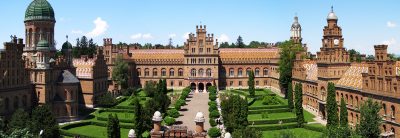
The University of Ukraine organized a conference on “’Conflict Transformation and Peacebuilding in Ukraine”. Mr. Per Gahrton; former MEP, delivered a keynote on “foreign and security conflict transformation and peacebuilding”, to University students, experts, academics and civil servants.
Per GAHRTON, FMA Member, participated in this event.
Mission report: CAN UKRAINE LEARN ABOUT CONFLICT RESOLUTION?
On 20 and 21 October I spoke at the Ukrainian European Studies Association in Kharkiv on the EU’s tools for conflict resolution. Kharkiv was proposed as the capital of the separatists’ ‘New Russia’, but although Russian is the language spoken by residents of Kharkiv in their day-to-day lives, they did not approve of the secession.
In Kiev, too, Russian is the language you are most likely to hear on the streets. The students at Vernadsky University breathe a sigh of relief when their lecturers allow them to switch from Ukrainian to Russian. History professor Mikhail Stanchev is one person who has continued to lecture in Russian, in spite of the new language law, which stipulates that all teaching should be done in Ukrainian (on 12 October 2017, the Council of Europe criticised the new law as ‘an infringement of the rights of national minorities’). Professor Stanchev gave me a copy of his Russian-language book, World War Three – the Battle for Ukraine, in which he accuses Putin of being a carbon copy of Hitler. In a private conversation with me, Professor Stanchev acknowledged that Ukraine did bear some responsibility for the conflict, owing to its failure to establish democracy at local level. He also agreed that it is a problem that the Association Agreement between the EU and Ukraine forced Ukraine to leave the former Soviet republics’ free trade area.
Reports from Kiev suggest that the Baltic and Scandinavian countries are the hawks when it comes to the Ukraine/Russia situation, whereas a number of countries in southern Europe are calling the sanctions into question. They are supported in their view by the UN rapporteur Idriss Jazairy, who has pointed out that the sanctions are costing EU countries USD 3.2 billion per month, and are having more of an impact on innocent Russian citizens than they are on the country’s leaders.
The audience at the conference listened with interest as I spoke about the EU’s peacemaking tools, from association agreements to sanctions. And they nodded in recognition when I spoke about Nordic conflicts and the peaceful ways in which they had been resolved, such as in 1658 when Sweden took over Skåneland, which Denmark had held for 300 years. Some 150 years later, in 1809, Sweden accepted the loss of Finland to Russia, following the Swedish poet Esais Tegnér’s exhortation for ‘Finland to be won back from within Sweden’s borders’. Norway’s secession from the union in 1905 was also agreed to by Sweden, and Finland was allowed to retain Åland on the basis of an international decision taken in the 1920s, despite the population’s wish to stay with Sweden. In the 1990s, Boris Yeltsin offered Finland the chance to buy Karelia back, but President Koivisto declined. I pointed out that that list of instances of Nordic countries accepting the loss of parts of their territories could be used to illustrate the EU principle that, rather than be altered, borders should be made unimportant. At that point someone asked, rather indignantly: ‘Are you advising us to give up Crimea and the Donbass, then?’ I said I was not. Of course regions have a democratic right to go their own way: look at Scotland, Quebec and Catalonia, for example. But the democratic rules have to be followed. That has not been the case in Crimea and the Donbass.
And Ukraine is not without blame: the language law shows a level of insensitivity that could make Russian-speaking Ukrainians doubt their Ukrainian identity. If Finland – where around five percent of the population are Swedish speakers – can have Swedish as an official language alongside Finnish, why can’t Ukraine give Russian official status alongside Ukrainian?
At a demonstration in front of the parliament building in Kiev I was given a little booklet of poetry entitled ‘Our fears went up in smoke on the Maidan’, apparently written in Russian by a Moscow-born poet. The first poem, ‘Ode to Ukraine’ is the only one written in Ukrainian.
It features the refrain: ‘We shed our blood for our freedom, and it showed that we are of Cossack nationality’. That booklet is the Ukrainian identity dilemma in a nutshell.

